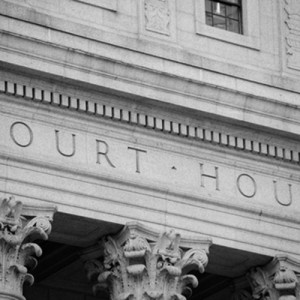SCOTUS rules against warrantless cellphone searches in ‘sweeping endorsement of digital privacy’
The U.S. Supreme Court has ruled that police generally can’t search the contents of a cellphone seized during an arrest, unless they get a warrant.
Chief Justice John G. Roberts Jr. wrote the unanimous decision (PDF) finding that such warrantless cellphone searches violate the Fourth Amendment. Justice Samuel A. Alito Jr. wrote a separate opinion concurring in the judgment.
SCOTUSblog founder Tom Goldstein says the opinion “is a sweeping endorsement of digital privacy.”
Many cellphones are minicomputers that hold vast amounts of data, and they are different than the other physical objects that police are allowed to seize without a warrant in searches incident to arrest, Roberts said in his opinion.
Cellphones “could just as easily be called cameras, video players, rolodexes, calendars, tape recorders, libraries, diaries, albums, televisions, maps or newspapers,” he concluded. Cellphones are “now such a pervasive and insistent part of daily life that the proverbial visitor from Mars might conclude they were an important feature of human anatomy,” he wrote.
The United States asserted that a search of data stored on a cellphone is “materially indistinguishable” from searches of physical objects incident to an arrest. Roberts disagreed.
“That is like saying a ride on horseback is materially indistinguishable from a flight to the moon,” he said.
The 1973 Supreme Court case, United States v. Robinson, set the standard for pat-down searches of an arrestee. A search incident to a lawful arrest did not require any additional justification, the court said in 1973. “While Robinson’s categorical rule strikes the appropriate balance in the context of physical objects,” Roberts said, “neither of its rationales has much force with respect to digital content on cellphones.”
“We therefore decline to extend Robinson to searches of data on cellphones, and hold instead that officers must generally secure a warrant before conducting such a search.”
Digital data on a cellphone can’t be used to harm an arresting officer or to facilitate escape, Roberts said. Officers may physically search a phone to eliminate threats such as a hidden razor blade, Roberts said, but once the device is secured, “data on the phone can endanger no one.” Roberts allowed there may be case-specific exceptions, as in the case of data indicating the arrestee’s confederates are headed to the scene, but the chief justice said such cases are better decided on a case-by-case basis.
Once the cellphone is seized and secured, Roberts said, there is no risk that an arrestee can delete incriminating data. There is danger of remote-wiping of data, Roberts said, but officers can eliminate the risk by turning off the phone, removing its battery, or placing it in a so-called “Faraday bag” that isolates the phone from radio waves. If there is an immediate risk of remote wiping, Roberts added, officers may be able to rely on “exigent circumstances” to justify an immediate search.
Roberts also acknowledged a risk that officers will be unable to search a phone after it locks, but offered a few solutions. Faraday bags may keep the phone in an unlocked state, he said, or officers may be able to disable the automatic lock.
Alito said in his concurring opinion that he would be willing to consider a different result if lawmakers enact laws that draw distinctions based on the type of data searched.
The two consolidated cases before the court concerned an old-fashioned flip phone and a more modern smartphone. In the flip phone case, police used a reverse directory to find the address of a number listed as “my house” on the flip phone carried by a man arrested on suspicion of selling cocaine outside his car. The suspect, Brima Wurie, received several calls to the “my home” number while in police custody. Police then obtained a warrant to search Wurie’s home and found drugs and a weapon.
In the other case, police seized a cellphone carried by David Leon Riley when he was stopped for an expired auto registration. Police learned Riley’s license was suspended and they impounded his car. Police found guns in the car and searched Riley’s smartphone, finding a photo of him next a car linked to a shooting as well as information indicating he was a member of a street gang.
The cases are Riley v. California and U.S. v. Wurie.
How We Can Help
If you, a friend or a family member find themselves in a situation such as this, please call the Law Office of Scott A. Ferris, P.A. at 305 670-3330 right away. Scott A. Ferris, Esq. is a licensed criminal law attorney who has been practicing law since 1987. He is available whenever you need him to defend your rights. Please learn about our firm at www.FerrisLawFirm.com.

